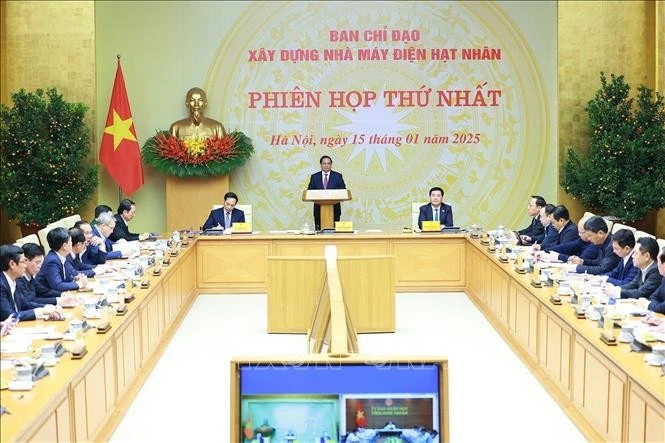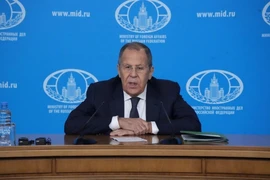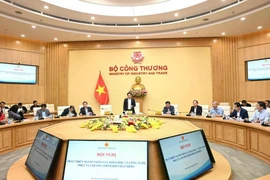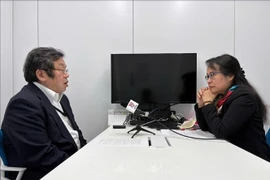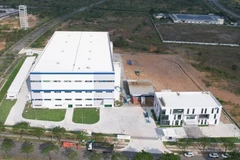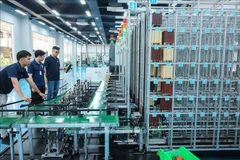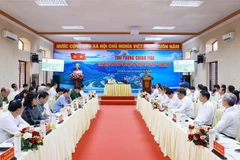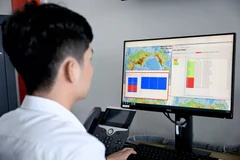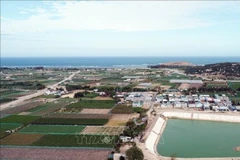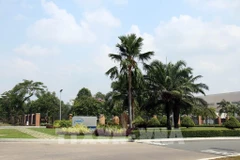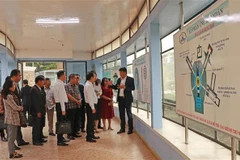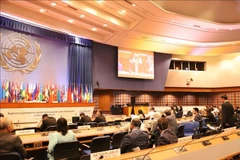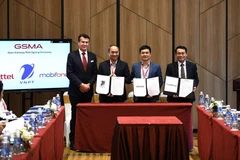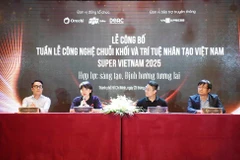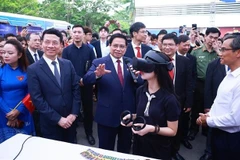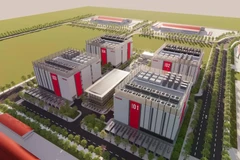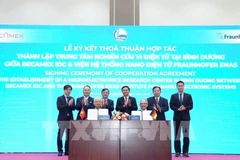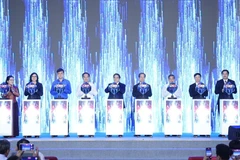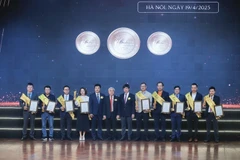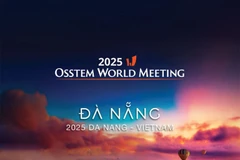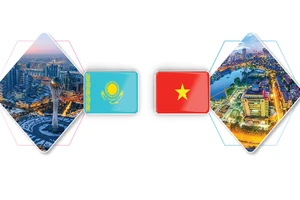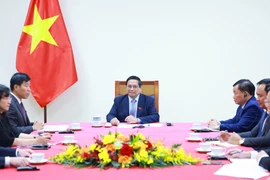Hanoi (VNA) – Prime Minister Pham Minh Chinh, who is also chairman of the steering committee for nuclear power plant construction, presided over the committee's first meeting in Hanoi on January 15.
The committee, which was formed following the PM’s Decision No. 72/QD-TTg issued on January 10, is tasked with overseeing the continued implementation of the nuclear power project in the south-central province of Ninh Thuan. Its tasks include supervising progress, proposing solutions to address obstacles during its construction, and directing necessary amendments to relevant laws to ensure the development of nuclear power while maintaining quality, safety, security, and effectiveness.
The committee is also responsible for researching and developing Vietnam's nuclear power programme for submission to relevant authorities for approval.
It is also assigned to boost cooperation with other countries, international organisations, and the International Atomic Energy Agency (IAEA) in nuclear power development and report regularly to the Prime Minister on the implementation progress of the Ninh Thuan nuclear power project.
Addressing the meeting, PM Chinh emphasised the urgency of the tasks, stating that the approach should be “running while queuing” – meaning tackling the work step by step while continuously improving, without seeking perfection or rushing.
He highlighted that the Party and State’s policies on developing nuclear science and technology are clear, including the construction of nuclear power plants to meet the growing demand for clean energy. In line with the goal of achieving double-digit GDP growth, the electricity growth target should be between 15-18%, he underlined.
The Government leader stated that in a new era of the nation, the era of growth, civilisation and prosperity, breakthroughs in science and technology are essential, including nuclear technology for peaceful purposes such as nuclear energy and nuclear medicine.
He outlined the goal to complete the Ninh Thuan nuclear power plant within five years, setting out a clear roadmap for each year, with the target of having a nuclear power plant in operation by 2030 to mark the 100th founding anniversary of the Party.
Stressing the need for clear thinking, high determination, strong efforts, and decisive actions to ensure the success of the project, PM Chinh called for the establishment of clear responsibilities, timelines, and measurable outcomes. He also requested a five-year plan with annual plans, with ministries and relevant agencies outlining their specific tasks for submission to the Ministry of Industry and Trade for consolidation.
Regarding tasks for immediate implementation, he instructed the Ministry of Industry and Trade to urgently revise and supplement the necessary planning scheme, to be completed by February 28.
Vietnam currently has around 400 specialists in the nuclear power sector, and State-owned Vietnam Electricity (EVN) and other relevant agencies must immediately focus on this workforce, while defining training needs and reporting proposals promptly, PM Chinh noted.
The Government leader also called for the creation of a dedicated, professional team to oversee the nuclear power plant project and prepare for future projects. Additionally, he directed a review of mechanisms concerning taxes, credit, land, and the attraction of skilled personnel for the project.
The PM also pointed to the need for preparing an infrastructure system, assigning Ninh Thuan province to encourage public-private partnerships and attract investment for the civilian use of Thanh Son Airport in the locality. The province must also prepare the necessary infrastructure to meet the requirements of the nuclear power plant and support the project’s workforce.
He also directed agencies to cooperate with the IAEA and tasked Ninh Thuan with supporting residents affected by the project. Necessary preparations are requested for the second meeting of the committee, scheduled to take place in mid-February, the PM stated./.
